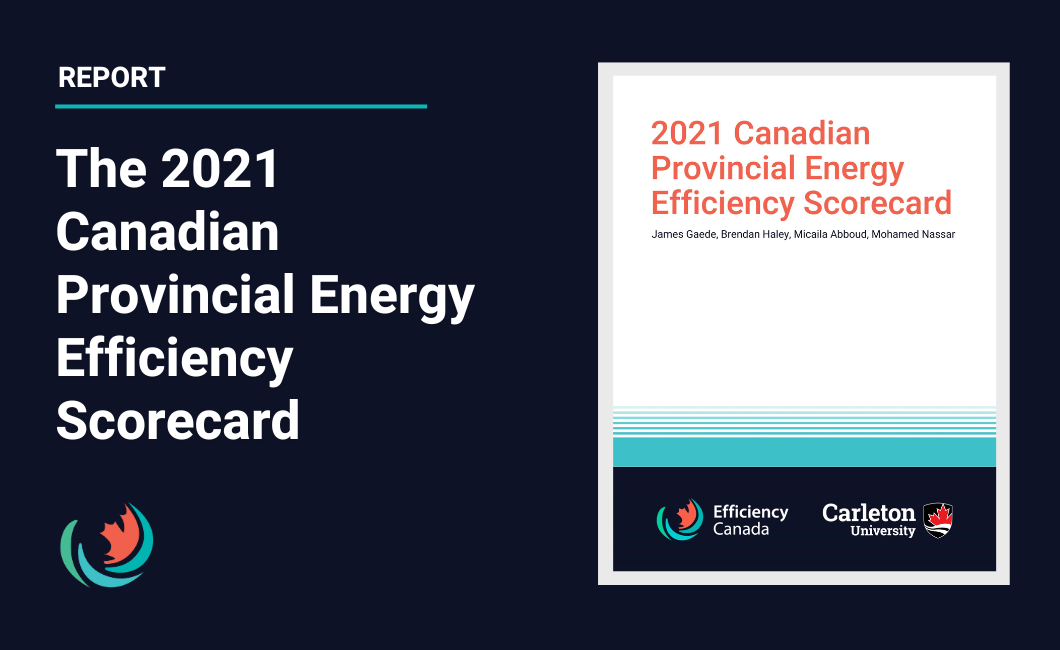
The third annual Provincial Energy Efficiency Report assesses policy and outcomes realized within the 18-month window between January 2020 and June 2021. We broadened our assessment window in this year’s edition to accommodate calendar and fiscal reporting periods, and to capture more recent policy developments introduced or implemented by provincial governments in the first half of 2021. Authored by James Gaede, Brendan Haley, Micaila Abboud, and Mohamed Nassar.
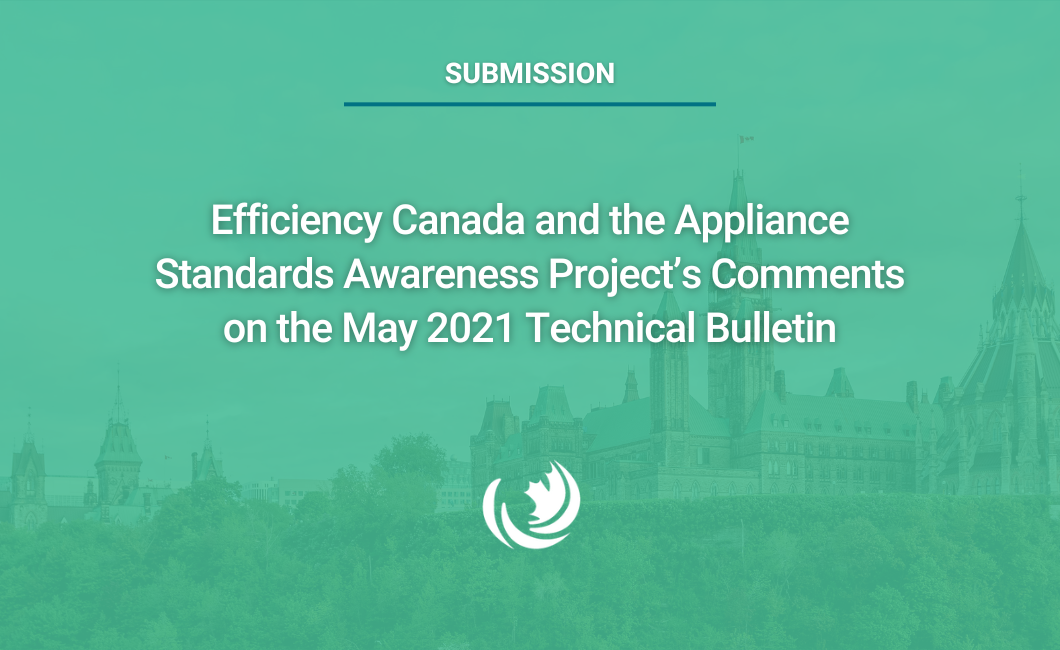
This letter constitutes the comments of Efficiency Canada and the Appliance Standards Awareness Project (ASAP) on the Natural Resources Canada (NRCan) May 2021 technical bulletin on amending the standards for appliances.
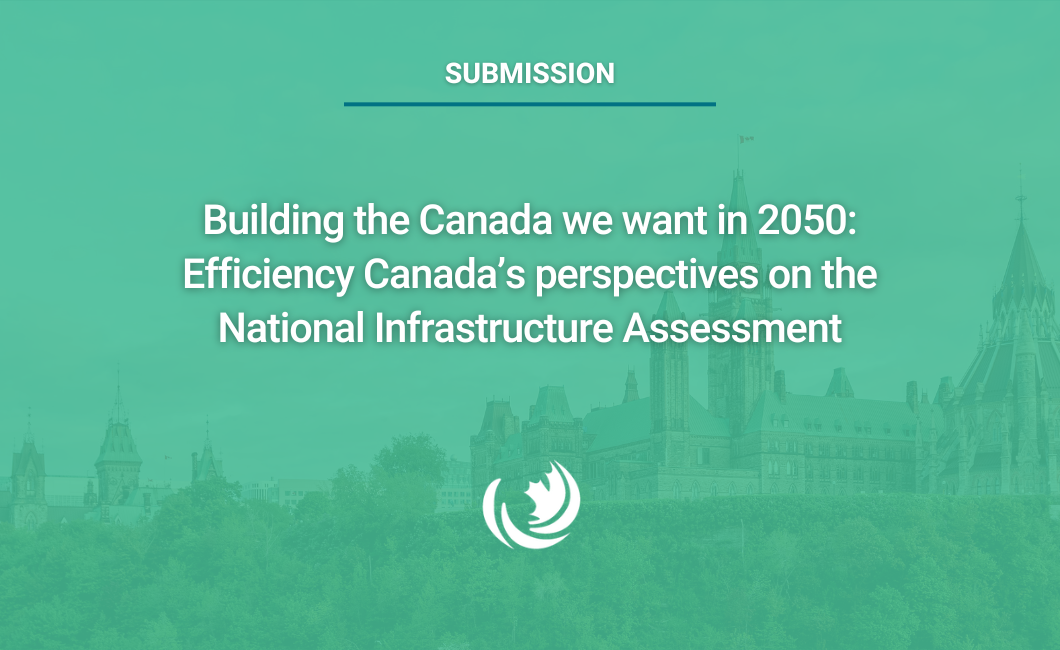
We welcome the opportunity to provide our thoughts and perspectives on the priorities laid out in Building the Canada We Want in 2050 Engagement Paper on the National Infrastructure Assessment. The Canada we want in 2050, with more inclusive and livable communities that offer affordable housing for all Canadians, can be achieved via wide-scale retrofits and net-zero new builds constructed with low and zero carbon building materials.
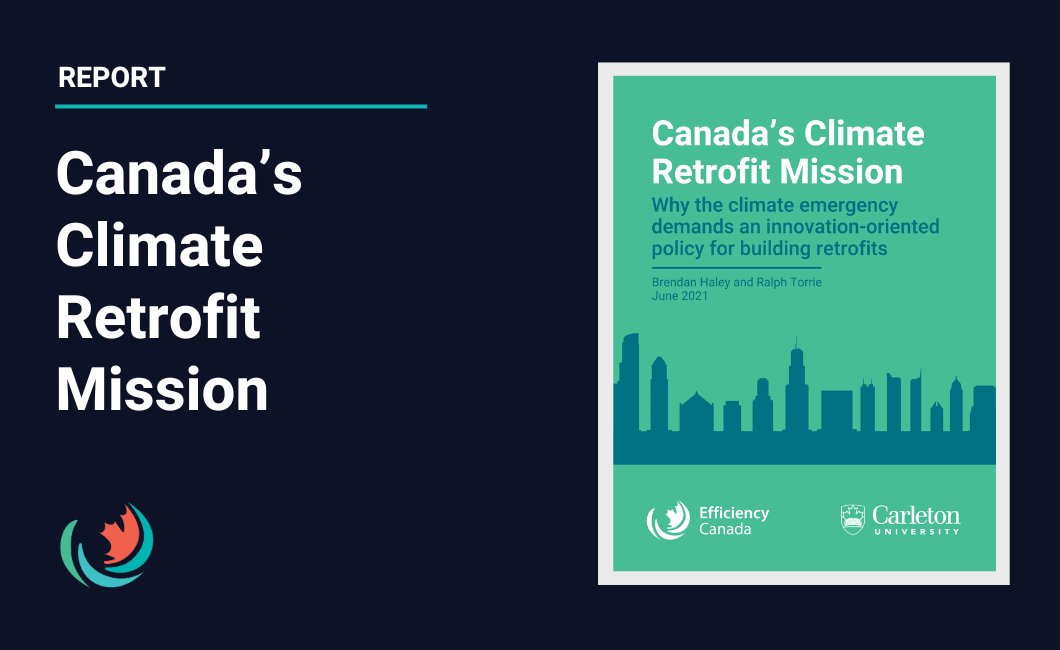
Retrofitting our buildings at the scale and performance required to confront climate change calls for market re-shaping innovations. This report defines a climate retrofit mission for Canada and proposes a way to organize the public sector to achieve it. Authored by Brendan Haley and Ralph Torrie.
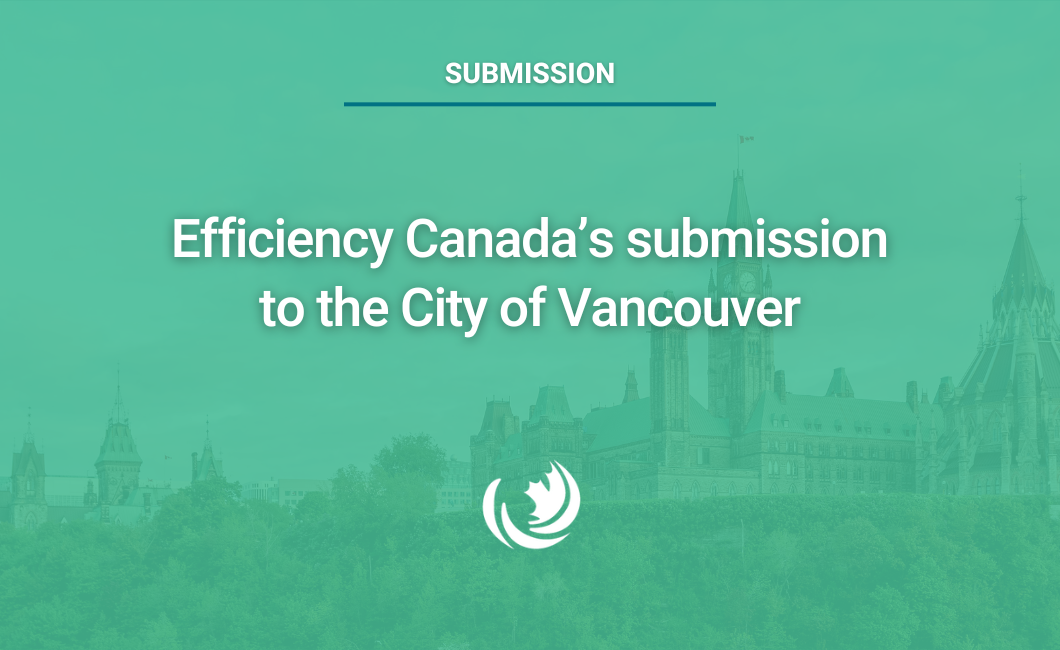
We are writing to ask you to approve recommendation A, B, and C in the report, which will help reduce building permit delays, and vote down recommendation D which proposes a one-year delay in implementing the city’s Climate Emergency Action Plan requirement that new homes be built with zero emissions heating and hot water requirements.
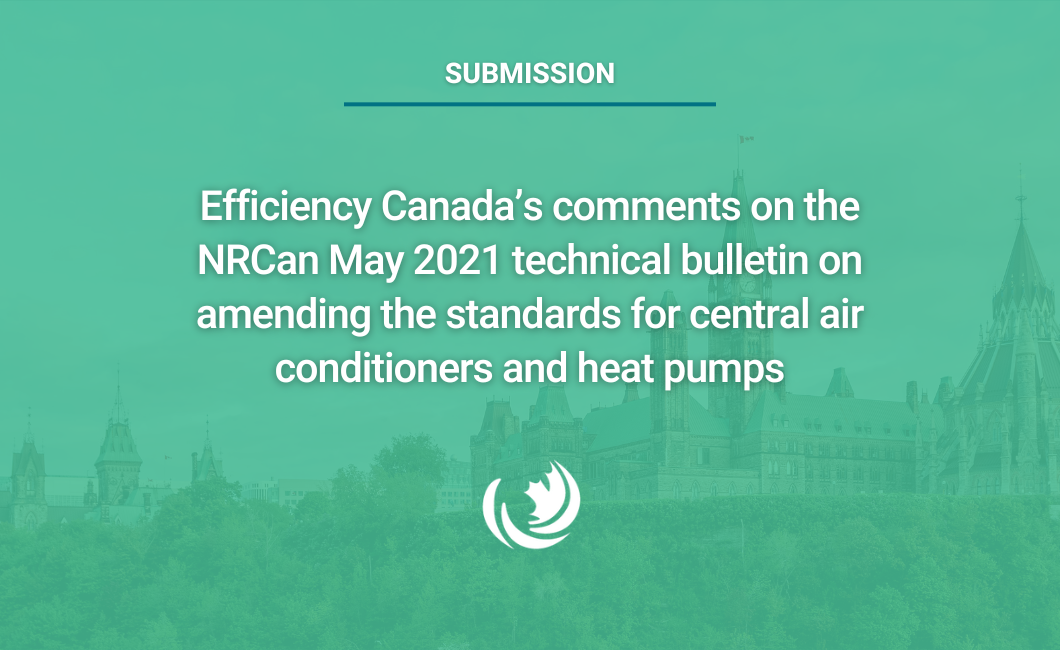
This letter constitutes the comments of the Appliance Standards Awareness Project (ASAP) and Efficiency Canada on the Natural Resources Canada (NRCan) May 2021 technical bulletin on amending the standards for central air conditioners and heat pumps.







